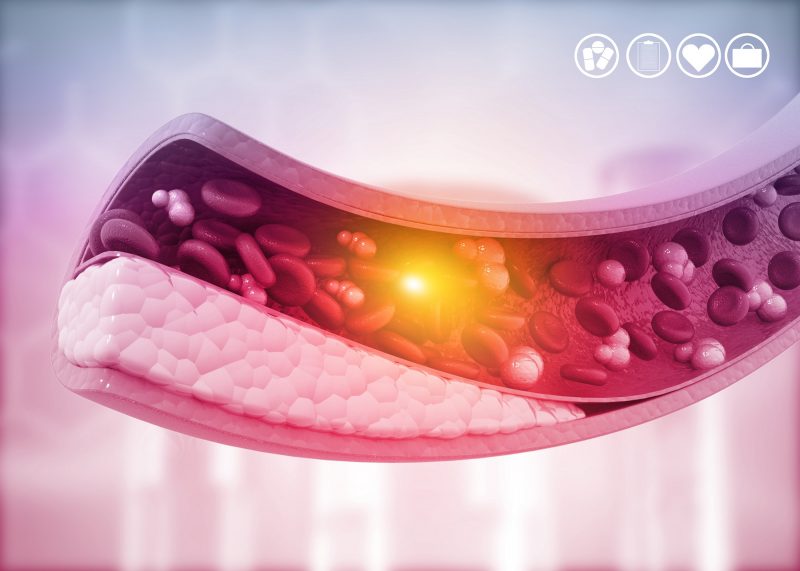Atherosclerosis is a disease that involves restriction of blood flow in arteries due to the buildup of plaque. Over time, the plaque hardens, narrowing the channel through which blood can flow and potentially impacting the circulatory system, heart and brain function.
Studies have associated atherosclerosis with impairment in memory, attention and executive function and concluded that the disease might predict a person’s risk of cognitive impairment.
A major cause of cardiovascular disease, atherosclerosis is a slow-moving condition that may start in childhood for some people, according to the American Heart Association. In some cases, the disease progresses quickly when a person reaches their 30s, while others experience no issues until their 50s, 60s or later.

How Atherosclerosis Affects The Brain
A healthy artery is elastic and flexible. As we age, the arterial walls can harden. Some level of hardening is expected for most people as they age. Atherosclerosis worsens this condition through the accumulation of fats and cholesterols within the arteries, creating plaque.
Plaque constricts blood flow and can also burst and cause a blood clot. If either of these two things happens in a carotid artery that supplies oxygen-rich blood to the brain, it can lead to a stroke. Symptoms include sudden weakness, paralysis, confusion, problems with eyesight, dizziness, severe headache and even loss of consciousness.
Research also has shown that atherosclerosis may predict onset of cognitive issues in otherwise healthy adults. A study published in the Chinese Medical Journal found that carotid atherosclerosis is an independent vascular risk factor for cognitive impairment in non-stroke patients.
“Carotid atherosclerosis not only impairs the subtle general cognitive function but also decreases the specific domains of cognitive function, such as memory, motor function, visual perception, attention and executive function,” researchers wrote.

Earlier studies, including one done with 2,000 participants at the University of Texas Southwest Medical Center, have found a connection between plaque build-up in the arteries and cognitive impairment.
More broadly, a 2019 study published in the Journal of Alzheimer’s Disease that involved 272 pairs of twins found an association between cardiovascular health and cognitive performance. Researchers wrote that the study’s findings support cardiovascular health as a metric for measuring brain health.
Symptoms and Risk Factors For Atherosclerosis
Atherosclerosis can often be asymptomatic. However, as you age, more signs may become apparent as arteries become increasingly blocked. Risk factors that can increase the chance of developing atherosclerosis including smoking, obesity, high blood pressure, diabetes and high cholesterol.
For arteries leading to the heart, atherosclerosis can manifest through chest pain or angina, which is a tightening in the chest. If the disease impacts arteries that lead to arms and legs, symptoms can include leg pain when walking.
For atherosclerosis that impacts the brain, people may eventually experience transient ischemic attack (TIA), which, if left untreated, may lead to a stroke, according to the Mayo Clinic.
The clinic lists the following potential symptoms of TIA:
- Sudden numbness or weakness in arms or legs
- Difficulty speaking or slurred speech
- Temporary loss of vision in one eye
- Drooping muscles in your face
Reduce Risk with Smart Health Habits
Removing plaque from your arteries typically requires invasive treatment. However, it’s possible to reduce your risk of atherosclerosis by developing smart health habits that prevent future buildup of plaque.
The first step is controlling risk factors. Doing so requires eating a healthy diet that minimizes processed foods and emphasizes whole grains, legumes, fish, vegetables and fruits. Routine exercise of at least 30 minutes for five days a week is also important. A doctor may also prescribe statins that lower cholesterol levels.
